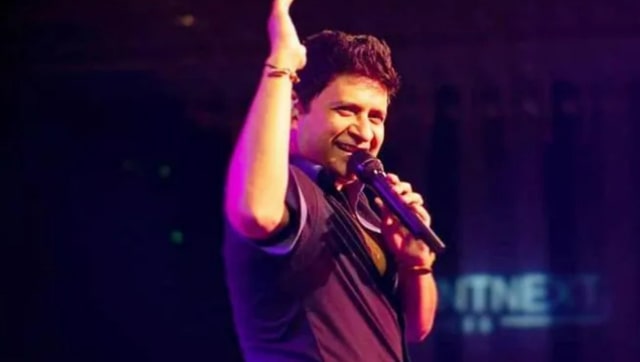Singer Krishnakumar Kunnath aka KK (23 August 1968 - 31 May 2022) There are some singers who hide in plain sight. Ever so often, while scanning their discography, you go “I didn’t know X sang this!” Amit Kumar, Suman Kalyanpur, Suresh Wadkar…the list goes on. KK , alias Krishnakumar Kunnath , is one of the more notable entries on that list. For the quarter century that he had been active, he was primarily associated with about a dozen songs which defined a generation: his breakout song from the eponymous album Pal, Tadap tadap ke is dil se from Hum Dil De Chuke Sanam , two milestone numbers from Nagesh Kukunoor movies: Yaaron from Rockford and Ashayein from Iqbal are chief among them. But KK’s work is littered with landmark songs. His first known Hindi film songs were for A.R. Rahman , Hello Doctor dil ki chori ho gayee and College ke saathi from Duniya Dilwalon Ki (1996), the Hindi dubbed version of the Tamil box office sensation Kadhal Desam (1996). The first hit song he lent his voice to was Chhod aaye hum from Gulzar’s Maachis (1996) along with Hariharan, Suresh Wadkar and Vinod Sehgal. The very next year, he sang another popular track composed by A.R. Rahman, Strawberry aankhen from Sapnay, which was the dubbed version of Minsara Kanavu. Both the Hindi version as well as the Tamil original, Strawberry kanne, are things of beauty, and extraordinarily hummable. Hum Dil De Chuke Sanam came along with the first widely popular song that everyone attributes to KK, Tadap tadap ke iss dil se aah nikalti rahi, composed by Ismail Darbar _._ But he also sang Kai po che from the same film. He did the title track of Pyar Mein Kabhi Kabhi (1999). In the same year came the Leslie Lewis -composed Yaaron, from Rockford. The song over the years has become an anthem of friendship and camaraderie. Rockford was a great bildungsroman, but this is one of the instances where a song becomes bigger than the film. 2001 was probably one of KK’s most prolific years ever. He teamed up with Anu Malik to croon the effervescent Banda yeh bindaas hai for Aks, and joined Shankar Mahadevan and Shaan for another youth anthem of the early noughties, Koi kahe kehta rahe from Dil Chahta Hai , sang the title track of Mujhe Kucch Kehna Hai, hummed the definitive “sad” love ballad Sach keh raha hai diwana from Rehna Hai Tere Dil Mein . KK was almost equally successful in Tamil film music, having sung the one track that even non Tamilians recognise instantly: Appudi podu podu podu/ Asathi podu kannaalae. The song, composed by Vidyasagar, was from Ghilli (2004). It’s a misnomer that KK was just a “90s singer”. He sang Ankhon mein teri ( Om Shanti Om , 2007), Khuda jaane ( Bachna Ae Haseeno , 2008), Zara si dil mein de jagah tu ( Jannat , 2008), the title song from Guzaarish (2010), Life sahi hai (Pyar ka Punchnama, 2011), Tune maari entriyan (Gunday, 2014), Tu jo mila ( Bajrangi Bhaijaan , 2015). And then there are the criminally underrated tracks: Deewangee title track (Deewangee, 2002), Kahaani title track (Kahaani, 2012), Mat aazma re from Murder 3 (2014), Saanson ke from Raees (2017), Kal ki hi baat hai from Chhichhore (2019). In a concerted effort to “dislike” the 2020 film Sadak 2, some of KK’s most beautiful tracks went unnoticed. The soulful Shukriya and the evocative Dil ki purani sadak deserve as much love as they can possibly get. And so does KK. For more than 25 years, not too many bothered to ask what the initials KK stood for. He went away, quite literally, with his boots on. The man was just 53. It’s heartbreaking. But what’s even more upsetting is how underappreciated his body of work is. Amborish is a National Film Award winning writer, biographer and film historian. Read all the Latest News , Trending News , Cricket News , Bollywood News , India News and Entertainment News here. Follow us on Facebook , Twitter and Instagram .
KK: Hiding in plain sight
Amborish Roychoudhury
• June 1, 2022, 15:17:54 IST
Singer Krishnakumar Kunnath, popularly known as KK, passed away with his boots on. It’s heartbreaking, but what’s also sad is the sheer volume of his work that is underappreciated.
Advertisement
)
End of Article